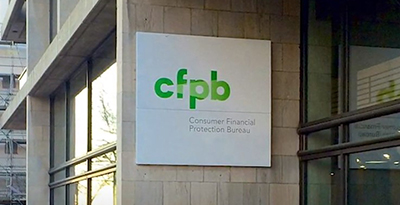
MBA Urges CFPB to Withdraw Nonbank Registry Proposal

The Mortgage Bankers Association, in its second letter to the Consumer Financial Protection Bureau, urged the Bureau to withdraw a proposal requiring nonbanks to register and report their use of certain terms and conditions in form contracts for consumer financial products and services.
The proposal would require supervised nonbanks include, among others, a nonbank supervised person subject to supervision and examination of the Bureau offering a residential mortgage-related product or service. These supervised nonbanks would be required to report the use “covered terms” in a “covered form contract,” defined as a pre-drafted contract used in multiple transactions which include covered terms.
“We urge the Bureau to focus on initiatives that will help lenders lower the cost of mortgage lending and support efforts to address the affordable housing crisis keeping many Americans from the dream of home ownership,” wrote MBA Senior Vice President of Residential Policy and Strategic Industry Engagement Pete Mills. “Rather than creating a complex and difficult to comply with registry, the Bureau’s rulemaking resources should be directed to lowering the costs for borrowers instead of raising costs on mortgage lenders through a proposal that will provide little benefit to those consumers.”
Furthermore, MBA said the Bureau “has offered no data supporting this proposal to the extent it covers the mortgage industry or the costs it would impose on mortgage borrowers. The Proposal also does not make the case for why it would benefit consumers outside of a very limited context. The proposal is confusing as to what terms are covered, making compliance costly. In sum, the Bureau has not done the necessary cost-benefit analysis and should withdraw this proposal for further study and analysis.”
The letter pointed out to the extent the mortgage industry uses any of the terms covered under this proposed rule, such usage is already heavily regulated, monitored, and in many instances publicly available. Most of the forms provided to consumers are created by government agencies that insure or guarantee mortgages or created by Fannie Mae, Freddie Mac or the Ginnie Mae)
“While the Bureau acknowledges this to some degree by providing an exemption for many of these contracts, the exemption as written creates several compliance challenges,” the letter said. “Additionally, it is unclear if the exemption as written fully covers the use of such publicly available form contracts.”
Should the Bureau proceed, MBA recommended the exemption be changed to a forms-based exemption from an entity-based exemption. “This change would create clearer compliance instructions for nonbank mortgage lenders,” MBA said. “Additionally, the exemption should be extended to other form contracts or agreements approved by agency or government regulators, insurers or guarantors related to a mortgage product or service.”
MBA emphasized its recommendation reflects the uncertainty of the requirements of the proposed rule. “The proposal uses broad and unclear language in its categorization of covered terms,” the letter said. “Such breadth is likely to cause confusion as to what is included, leading prudent companies to err on the side of over-inclusion in the registry to avoid penalties. Unfortunately, including those forms will also cause companies to incur the stigma of appearing in the CFPB’s registry.”
Additional details can be found in the letter.
